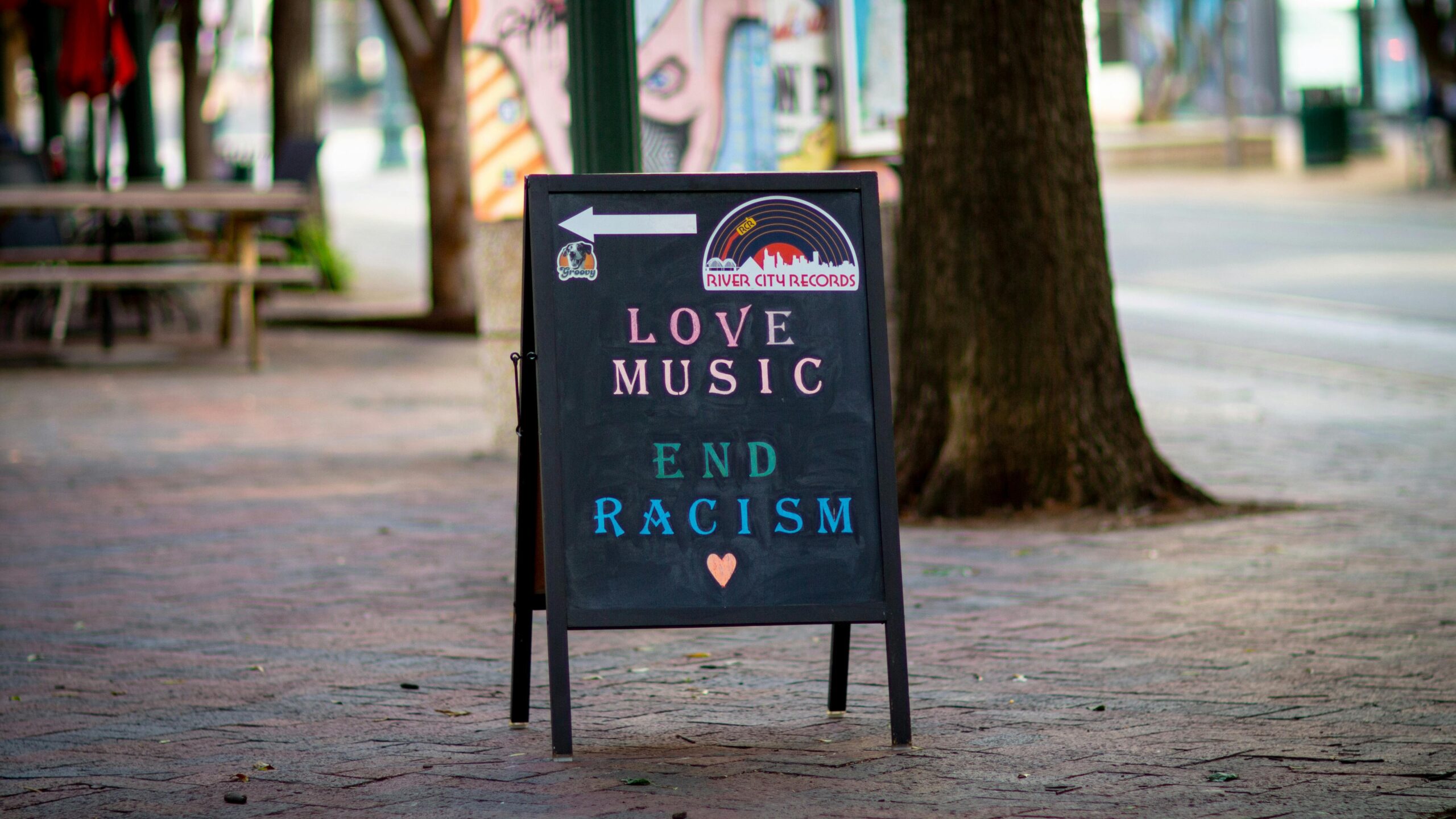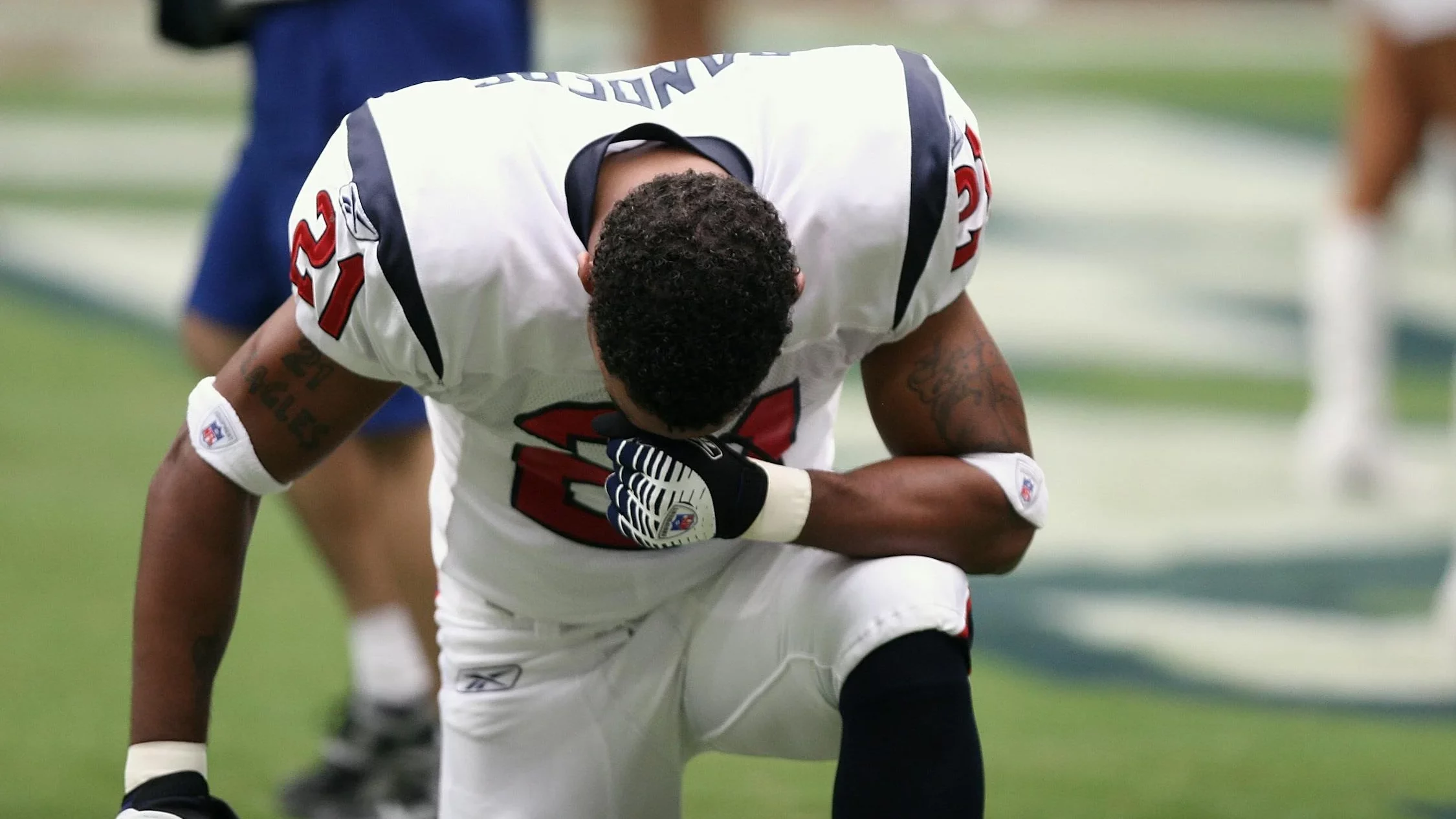
We witnessed something profound during the recent Super Bowl LIX on February 9th. Maybe you did too. It is the quiet erosion of a powerful statement. The NFL, preparing for a historic appearance as the first sitting president to attend a Super Bowl, replaced their long-standing “End Racism” end zone message with “Choose Love” and “It Takes All Of Us.”
When questioned about this change, NFL officials pointed to recent national tragedies: devastating California wildfires, a terrorist attack in New Orleans, tragic plane crashes near our nation’s capital. Their response suggests these messages offer comfort during difficult times. Yet as a Black woman-owned firm dedicated to racial justice and arts for social change, we see a deeper story unfolding. A story where corporations increasingly retreat from explicit anti-racism stances just as executive orders target diversity, equity, and inclusion programs across the United States.
Love speaks softly, but ending racism demands we speak its name.
The Power of Naming
Words shape reality. When corporations choose vague messaging over explicit anti-racism stances, they erase accountability. “End Racism” confronts this truth head-on – it declares both the problem and our intention to solve it. “Choose Love,” while beautiful in sentiment, wraps hard truths in comfortable platitudes. “End Racism” demands action. “Choose Love” offers an escape hatch.
The NFL’s decision reflects a broader corporate retreat from explicit anti-racism commitments. Since the new administration took office, we’ve watched as institutions steadily soften their language around racial justice. Companies replace specific commitments to end systemic racism with vague promises about unity and harmony. These shifts align precisely with new executive orders targeting DEI initiatives and pressuring private organizations to abandon their diversity programs.
The NFL’s message swap didn’t happen in a vacuum. It represents a calculated choice to prioritize comfort and safety over progress, to choose what’s palatable over what’s necessary. At FUNKY BROWN CHICK, Inc., we know through our racial justice work that real change demands us to name, confront, and actively dismantle systems of oppression.
And at the Super Bowl halftime show on February 9, 2025, we saw a perfect example of that. Through art and defiance, resistance took center stage.
Art as Resistance
At our firm, we’ve experienced the power of art to create social change many times over. Kendrick Lamar’s Super Bowl halftime show is another formidable example of that.
Instead of a sanitized performance designed to make everyone comfortable, 117 million viewers watched Samuel L. Jackson, dressed as Uncle Sam, command Kendrick Lamar not to be “too loud, too reckless, too ghetto.” The start of a performance that demonstrates how demands for racial justice have been silenced in the United States.
When Lamar’s dancers formed an American flag across the Superdome field, with the artist positioned as a deliberate tear through its center, social media erupted. One viral post captured it perfectly: “Samuel L. Jackson as Uncle Sam, the personification of America, telling Kendrick his performance is ‘too ghetto’ and then it cutting to Kendrick’s all-black backup dancers arranged as the American flag all while That Man is in attendance? Kendrick I was not familiar with your game.”
“The revolution ’bout to be televised,” Lamar announced. “You picked the right time but the wrong guys.” The impact was immediate – the president left his luxury box early, but not before millions witnessed this fusion of art and activism. By turning the NFL’s massive platform into a space for uncomfortable truths, Lamar demonstrated exactly what our firm’s founder has always emphasized: cultural expression drives social change.
This matters because it forces us to confront a crucial question about racial justice work: When institutions choose comfort over progress, who really benefits?
Why This Matters

Black History Month arrives at a pivotal moment in history this year. As some leaders attempt to dismantle this celebration of Black achievement and resistance, the NFL’s messaging shift from “End Racism” to “Choose Love” echoes a familiar pattern. We’ve seen this before in the NFL. When Colin Kaepernick took a knee to protest police brutality, the NFL initially condemned his actions. Only after George Floyd’s murder did the league launch their “Inspire Change” initiative, finally acknowledging what Kaepernick had been saying all along.
The numbers reveal why explicit anti-racist stances matter. While 53% of NFL players are Black, only 19% of head coaches share that identity. The league’s Rooney Rule requires teams to interview diverse candidates for leadership positions, yet true representation remains elusive — in the NFL and in many organizations across the country. The statistics demonstrate how “choosing love” without naming and addressing specific inequities maintains the status quo.
High-profile platforms like the Super Bowl possess unprecedented power to shape cultural conversations. When organizations retreat from explicit anti-racism messaging, they don’t just change words. They signal to millions what deserves attention and what can be comfortably ignored.
At FUNKY BROWN CHICK, our work with racial justice organizations has proven that progress demands both courage and consistency. As corporations face mounting pressure to soften their stance on racial equity, we must ask: who will stand firm?
Stand With Us
FUNKY BROWN CHICK partners with nonprofits and artists who refuse to soften their stance on racial justice. Through our digital strategies and data analytics, we’ve helped nearly 100 organizations amplify their impact across $655 million in collective budgets. We understand that real change happens when bold artistic expression meets strategic action.
This year’s Super Bowl showed millions what happens when art confronts comfortable silence. But such moments of resistance need sustained support to create lasting change. Your organization can make a difference by:
- Maintaining explicit anti-racist language in your messaging
- Supporting Black artists and cultural initiatives
- Using data to measure and showcase your impact
- Partnering with organizations that prioritize racial justice over comfortable platitudes
Ready to amplify your impact? Our team can help your organization move beyond choosing love to actively ending racism. Together, we’ll create the messaging, metrics, and momentum needed for real change. Contact us to start the conversation. Because ending racism demands more than love – it demands action.
